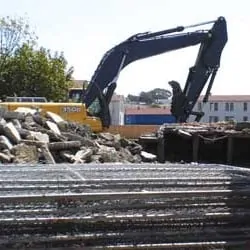


Determining whether something is a “hazardous waste” can be challenging due to the myriad of regulations and guidance that have evolved over the decades. One example was the confusion over simple wipes used to remove cleaning solvent from metal parts — until the U.S. EPA published management practices specifically for industrial wipes. Compliance with these practices prevents the wipes from being considered hazardous waste no matter where the solvent is first applied. Similar management practices are required for other wastes (e.g., used oil, fluorescent light bulbs, mercury thermostats, lead-acid batteries) to keep them from being hazardous waste. SCS’s professionals understand the nuances and implications of these various regulations, and we regularly help businesses implement the management practices required for specific industries.
SCS helps the regulated community comply with all phases of the Subtitle C program, from determining whether wastes are hazardous; to permitting and design of treatment, storage and disposal (TSD) facilities; to the design of closure plans and corrective action for releases. Compliance audits performed by experienced, independent professionals often can suggest improvements to operations that can minimize the possibility of unintentional violations.
Facilities requiring a permit (including a post-closure care permit) under the Subtitle C program are subject to the corrective action requirements of RCRA. The corrective action program applies to releases from regulated hazardous waste units as well as almost any other portion of the facility. The challenges for those subject to the corrective action program are to remain focused on the real problems during the RCRA Facility Investigation/Corrective Measures Study (RFI/CMS) process, and to implement necessary interim and final corrective measures without unnecessary study or delay. In some cases, it may be possible to address RCRA corrective action under a state voluntary cleanup program.
SCS Engineers offers a full complement of RCRA services, including: